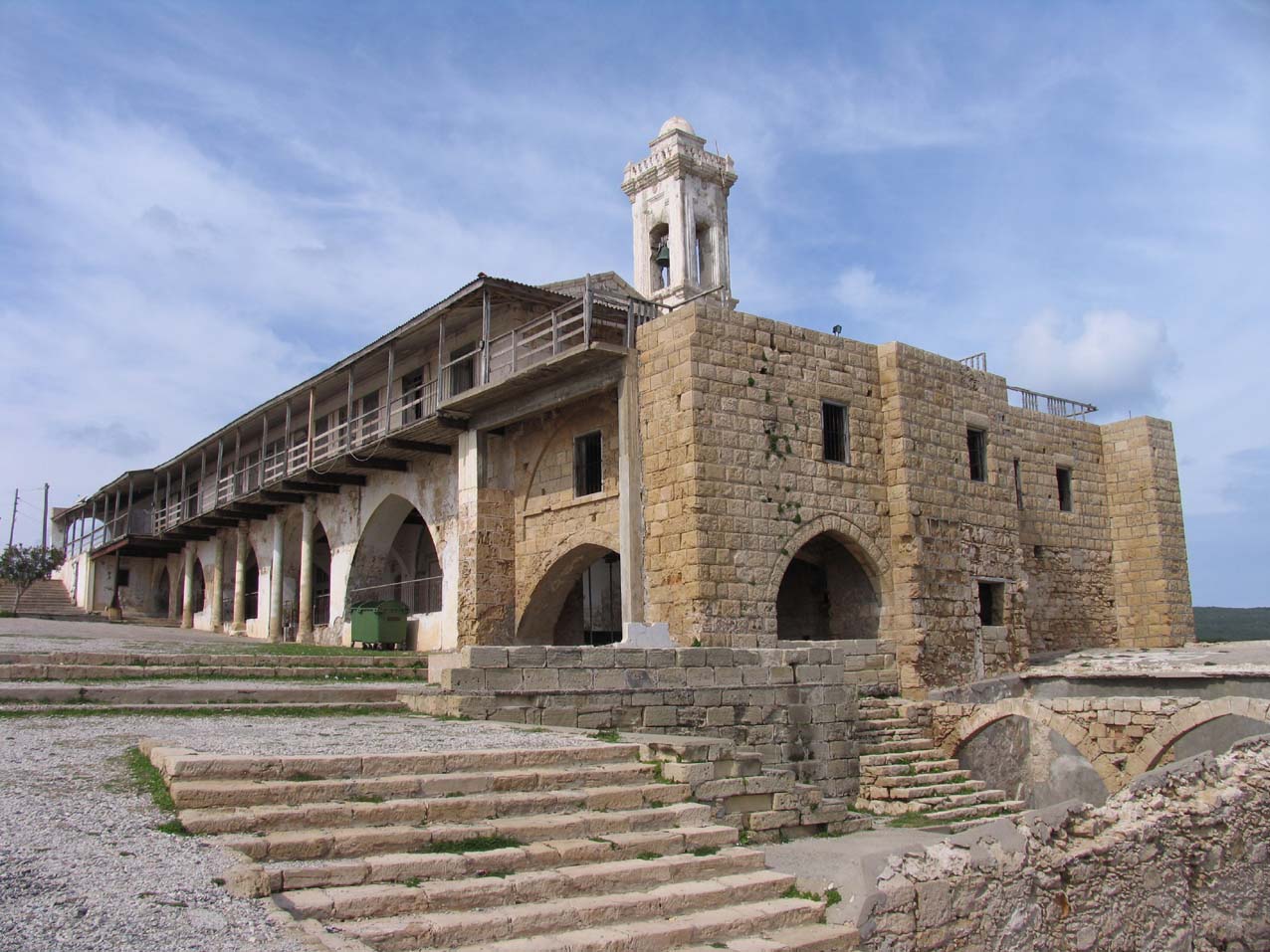Historic day for Apostolos Andreas
 Restoration work on the dilapidated monastery of Apostolos Andreas in the Karpas peninsula will finally begin after an agreement was signed yesterday between the Church of Cyprus and the United Nations Development Programme (UNDP).
Restoration work on the dilapidated monastery of Apostolos Andreas in the Karpas peninsula will finally begin after an agreement was signed yesterday between the Church of Cyprus and the United Nations Development Programme (UNDP).
The monastery will be restored according to a study prepared by the University of Patra in Greece. The work will be in three phases with the first phase estimated to cost €2.5 million.
According to an announcement by the bicommunal Technical Committee on Cultural Heritage and the UNDP, two protocols were signed yesterday morning by UNDP with the Church on the one hand and the Turkish Cypriot EVKAF Administration on the other.
“The new partnership agreement is an important milestone in the collaboration between the Greek Cypriots and Turkish Cypriots for the preservation of their cultural heritage,” said the statement.
A “multi-donor partnership” has been set up to restore the historic monastery.
Technical committee co-chairman Takis Hadjidemetriou described yesterday’s agreement as “an historic day for saving the monastery of Apostolos Andreas”.
He said the monastery is both a monument and symbol of the island’s tradition and culture, adding that the technical committee worked hard to get the restoration work going following numerous delays and hurdles and now feels that all its efforts have paid off.
Hadjidemetriou stressed that the signing of the agreement also symbolised the cooperation and team spirit of all those who wished to keep working for the conservation of Cyprus’ cultural heritage islandwide.
Karpas Bishop Christoforos said the agreement indicates that cooperation between Greek Cypriots and Turkish Cypriots on the island is possible, and expressed hope that soon “we will be able to continue our joint work and cooperation without UN mediation”.
He said the Church was extremely pleased and enthusiastic with the outcome, noting that all efforts have finally borne fruit.
Next week, the final provisions of the agreement will be signed paving the way for the announcement of a call for tenders. Christoforos could not say with certainty when the works would start though.
Archbishop Chrysostomos said he was satisfied with the outcome because the UNDP would be responsible for calling tenders for the work, ensuring that any changes to be made would have to be part of the relevant study prepared for the monastery by Patra University.
Government spokesman Stefanos Stefanou welcomed the signing of the agreement after many years of effort, saying it was of “huge importance”. Now that the foundation work had been done on the nature of collaboration for the restoration work, there was no turning back, he added.
After decades of neglect following the 1974 Turkish invasion, the monastery complex now needs to be renovated. The keystone to the monastery’s main arch has shifted, endangering the main part of the structure.
However, restoration work has been delayed for years and in early January it looked like it would continue to be put on hold after the Archbishop said he was prepared to let the historic monastery collapse rather than sign a plan that did not state the Church of Cyprus owned the site.
“I’ve said it before that I would rather see the monastery collapse than let go of the property. The monastery is ours,” Chrysostomos on January 10 to state broadcaster CyBC.
Last month, the primate blamed the bicommunal technical committee assigned to protect the island’s cultural heritage, saying that it has done nothing to help, adding that its stance has even been more negative than positive.
The bicommunal committee was created in April 2008 and has helped in seeing through the renovation of religious monuments on both sides of the divide, including the Ayios Armolaos church in Kyrenia, the Saint Mamas church in Lapithos, and has been fixing the Tophane Mescit mosque and the Akaki mosque in Nicosia.
It has also been co-ordinating Apostolos Andreas’ restoration efforts for the past year but the Church initially refused to agree because a document prepared by the UNDP named them only as donors not owners of the site.
Hadjidemetriou clarified that the UNDP was only following protocol in calling them donors, as it has done with thousands of agreements around the world.
He hinted that if the Church displayed a spirit of trust and cooperation, the monastery’s restoration project could have been at a far more advanced stage than it was.
Source: pravoslavie.ru






